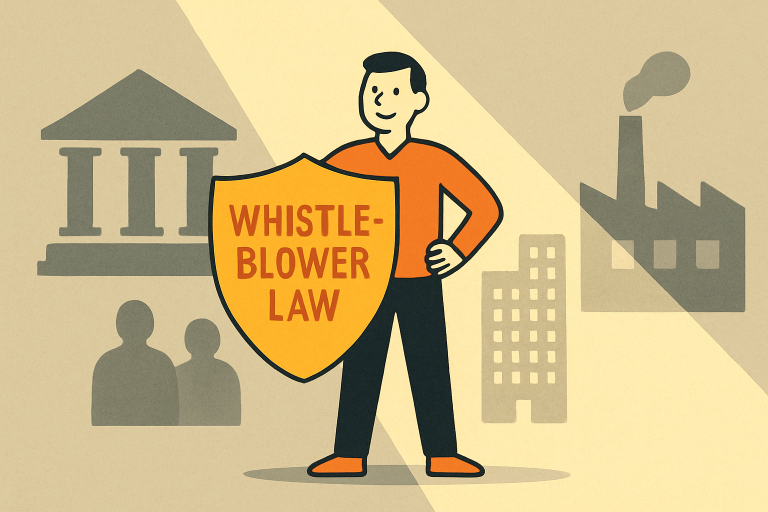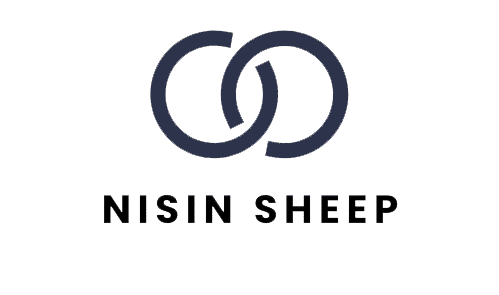Key Takeaways
- Whistleblower laws protect individuals from reprisals, encouraging voices to speak out against wrongdoing and facilitating the exposure of misconduct within both public and private organizations.
- Revelations from whistleblowers have led to significant reforms and policies across various sectors, often resulting in stricter regulatory regimes, enhanced internal controls, and increased public awareness.
- Challenges persist, including insufficient protections in certain jurisdictions, delays in legal recourse, and the social stigma associated with whistleblowing, all of which continue to deter potential reporters.
- Modern technology and evolving law are making it safer for whistleblowers to come forward, expanding access to secure channels for reporting and enhancing the effectiveness of legal protections.
Every day across the globe, individuals working within expansive public institutions, major corporations, and even smaller private organizations are exposed to practices that threaten the integrity of the systems they help maintain. From financial fraud schemes and violations of environmental regulations to unsafe workplace practices and discriminatory conduct, countless forms of misconduct can undermine both organizational ethics and public trust. Whistleblower laws have emerged as crucial safeguards in this environment, ensuring those with the courage to step forward and report wrongdoing are legally protected from retaliation. These laws do more than create legal rights—they foster a culture where transparency, responsibility, and integrity are values championed by employees at all levels. Those seeking legal guidance or wishing to stand up for what is right can access more information and support at https://ifightforyourrights.com/whistleblower-lawyer/. Whistleblower protections can mean the difference between silence and the pursuit of justice, making them essential to the health of any ethical organization.
The transformative power of whistleblower laws lies not only in the legal protections they provide but also in their broader, positive social impact. By minimizing the fear of retaliation—historically one of the greatest barriers to speaking out—these laws empower ordinary people to take on pivotal roles as agents of accountability. Such empowerment helps expose wrongdoing and systemic abuses that might otherwise remain concealed behind closed doors. In doing so, whistleblowers become the catalysts for essential reforms, not only driving change within the organizations they expose but often setting off ripple effects across entire industries or governmental domains. Through their actions, whistleblowers compel institutions to confront their ethical lapses, leading to improvements in transparency and oversight that benefit society as a whole. As a result, the courage of these individuals, backed by robust legislation, serves as both a shield and a spotlight—both protecting and illuminating the path to greater corporate and governmental responsibility.
The Role of Whistleblower Laws in Promoting Transparency
The significance of strong whistleblower laws extends well beyond mere legal compliance; such laws symbolize a larger societal commitment to uncovering the truth and upholding ethical conduct. In the United States, for instance, the Whistleblower Protection Act of 1989 stands as a cornerstone of federal safeguards. This legislation provides federal government employees with a structured process to challenge and seek redress for acts of retaliation resulting from lawful whistleblowing. Over time, its guiding principles have inspired corporations, universities, healthcare systems, and even local governments to develop their own whistleblower policies. These regulatory advancements collectively serve to strengthen social norms surrounding transparency, making it clear that shedding light on abuse or fraud is both necessary and valued. For those interested in the Act’s far-reaching implications and its evolving nature, see the Whistleblower Protection Act. Ultimately, robust whistleblower laws are crucial to fostering institutional cultures that reject secrecy and promote openness, thereby enhancing trust between organizations and the public they serve.
Historical Impact of Whistleblowing
The historical record is abundant with examples demonstrating the transformative impact whistleblowers have had on society. One of the most iconic is the Watergate scandal, a political earthquake that rocked the United States in the 1970s. Thanks to the anonymous source known as Deep Throat, critical evidence reached journalists and investigators, leading ultimately to President Nixon’s resignation and a permanent shift toward greater political oversight and campaign transparency. Decades later, in the wake of the Enron collapse, executive Sherron Watkins shone a spotlight on the energy giant’s fraudulent accounting—the revelations prompted the passage of the Sarbanes-Oxley Act of 2002, a historic overhaul of corporate accounting practices and federal oversight. In the global arena, whistleblowers have exposed illegal banking schemes and military abuses, demonstrating repeatedly that the actions of vigilant individuals can drive comprehensive reforms. These cases illustrate the profound risks that whistleblowers face—but also the remarkable societal rewards that come with bringing injustices to light.
Challenges Faced by Whistleblowers
Despite the existence of legal frameworks designed to protect them, whistleblowers often face significant personal and professional challenges when stepping forward. Among the most direct threats is workplace retaliation—demotions, hostile work environments, or even wrongful termination can immediately follow disclosures of misconduct. The path for whistleblowers rarely becomes easier after leaving their jobs, as the social stigma surrounding their decisions can lead to ostracism by peers, friends, and even family members. The public perception of whistleblowers can be paradoxically negative, casting them as “betrayers” rather than as individuals of integrity who stand up for the public good. Worse still, gaps or inconsistencies in how whistleblower laws are implemented and enforced can leave even the most courageous at risk of protracted legal battles or financial hardship. Organizations like the National Whistleblower Center not only advocate for more rigorous protections but also provide support, advice, and sometimes financial aid to whistleblowers before, during, and after their disclosures. Stronger advocacy and education remain essential to reducing the chilling effect these obstacles create.

Advancements in Whistleblower Protections
Recognizing the complex challenges faced by whistleblowers, lawmakers in the US and abroad have begun to introduce reforms aimed at closing loopholes and expanding protections. Recent proposals, such as the Whistleblower Protection Improvement Act, signal a new chapter in legal evolution by targeting inconsistencies in coverage, thereby increasing the scope of protection to include more types of workers and institutions, including private sector employees and federal contractors. The push for these improvements reflects growing public consensus that ethical conduct, transparency, and the exposure of wrongdoing must be robustly protected in any just society. Complementing these legislative shifts, courts and oversight agencies are adopting more pro-whistleblower standards, helping to ensure that laws are not just written but enforced in meaningful ways. For a more detailed analysis of these trends and their implications for future whistleblowers, refer to The New York Times’ coverage of recent whistleblower protections. The combined result of these advancements is a legal landscape that is gradually shifting toward greater inclusivity and practical effectiveness.
The Role of Technology in Whistleblowing
Today, technological innovation serves as both a lifeline and a shield for whistleblowers. Secure digital reporting channels now enable confidential, anonymous disclosures of wrongdoing in ways not possible in earlier eras—for example, encrypted messaging platforms, secure web-based reporting portals, and even the use of blockchains for tamper-proof documentation. These technologies offer whistleblowers both protection from retaliation and viable alternatives to traditional, often risky, internal pipelines. Not only do they reduce the dangers of exposure, but they also allow more people—regardless of geography or economic means—to report abuses. In some cases, whistleblower platforms even include legal guidance or escrow services, further lowering barriers to safe reporting. These advances represent a fundamental shift, empowering whistleblowers to act without putting their livelihood or safety in immediate jeopardy.
Global Perspectives on Whistleblower Laws
Legal approaches to whistleblowing vary widely from country to country, reflecting deeply rooted cultural norms and differing attitudes toward dissent and civic duty. In the European Union, the adoption of the Whistleblower Protection Directive in 2019 marked a significant milestone, obligating all member states to establish safe and accessible reporting mechanisms, impose strict penalties for retaliation, and provide legal recourse for affected employees. By aligning diverse national laws around a shared standard, the Directive signals that whistleblowing is a legitimate and respected aspect of democratic governance. Other nations, including Australia, South Korea, and South Africa, are also working to strengthen their legal frameworks, although progress is uneven and challenges persist. Nevertheless, the spread of whistleblower protection internationally continues to elevate the act of coming forward as both a legal right and a means of upholding fundamental societal values.
Conclusion
Whistleblower laws have fundamentally altered the role of individuals in safeguarding the ethical boundaries of organizations and public life. By making it legally safer to step forward, these protections not only empower personal courage but foster a broader expectation of accountability and transparency. With ongoing advancements in technology, the expansion of legal protections, and persistent advocacy from civil society, current and future whistleblowers are better equipped to challenge entrenched abuses of power. The transformative potential of these laws is evident in every meaningful reform generated by a disclosure—each an example of how personal integrity, backed by legal and societal frameworks, drives justice and ethical conduct throughout society. As the legal landscape evolves and protective measures strengthen, the role of whistleblowers in shaping a more honest and accountable world will only grow.

